Recent attendance statistics from the Anglican Church of Canada predict that it will cease to exist by 2040.
Understandably, this has spread consternation amongst the clergy; no one likes to be unemployed.
The new Primate, Linda Nicholls, sees this as a “wake-up call” and asks, “what might need to be tried” to reverse the decline? I would be tempted to suggest “Christianity” if I thought it would fall on any but deaf ears.
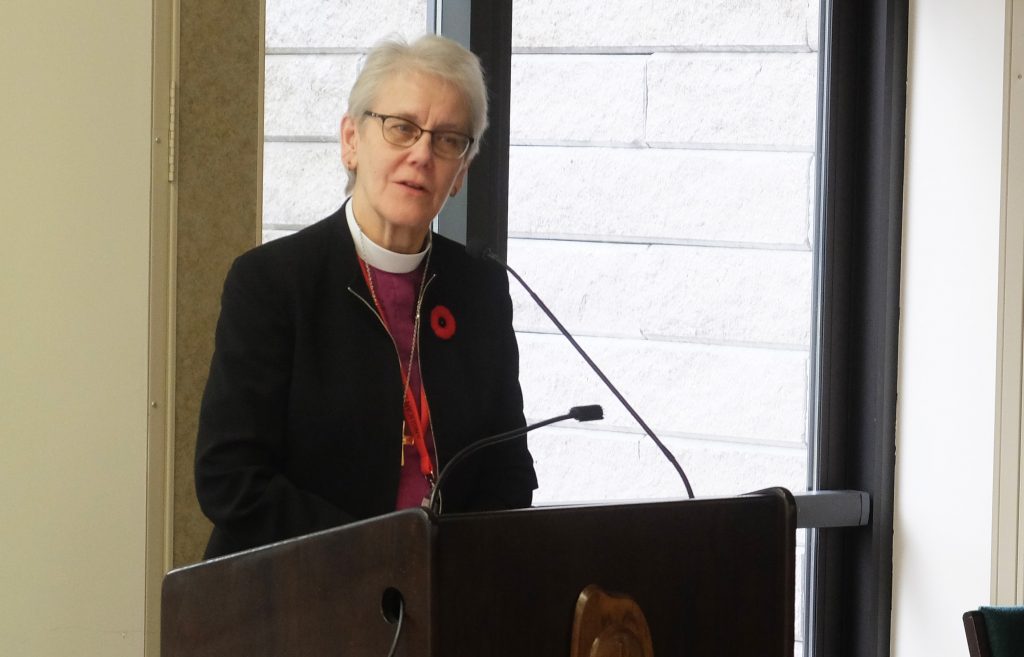 “I don’t think they’re a surprise to anybody,” Nicholls said of the statistics in an interview with the Anglican Journal. “Anybody who’s been in the church in the pews, or as a priest, or as a deacon or a bishop has known that this decline has been happening. We see it every Sunday, we see it in lots of ways. “I think it is a wake-up call…. If people are not coming to the church and finding a place of hope and good news, then we have to ask, ‘How are we presenting that hope and good news to this current generation and time? And what might need to be tried?”
“I don’t think they’re a surprise to anybody,” Nicholls said of the statistics in an interview with the Anglican Journal. “Anybody who’s been in the church in the pews, or as a priest, or as a deacon or a bishop has known that this decline has been happening. We see it every Sunday, we see it in lots of ways. “I think it is a wake-up call…. If people are not coming to the church and finding a place of hope and good news, then we have to ask, ‘How are we presenting that hope and good news to this current generation and time? And what might need to be tried?”
Nicholls muses that part of the problem is the “general zeitgeist”, an observation that might have some merit were it not for the fact that the ACoC has utterly capitulated to the zeitgeist: the two are marching in lockstep. In spite of the church’s eagerness to oblige, potential customers have little reason to turn to the church to have their chosen pronouns affirmed, their gender reassignment baptised or their drag attire sprinkled with holy water.
Laughably, Michael Thompson general secretary of General Synod, put his finger on the problem without noticing he had done so. When the church busied itself with saving souls, ignoring social justice fads, parishes were full to overflowing. “Things are quite different now”, he tells us: now we hear about nothing but social justice and the pews are empty. This, he tells us is a “change for the better”.
Introducing Elliot’s presentation to CoGS, Thompson said he believed Canadian Anglicans should look at the numerical decline of their church’s membership in the context of other changes for the better.
The London, Ont., church in which he started worshipping in 1968, Thompson said, “while not filled to the point of discomfort, was full.” On the other hand, he added, “in all of the years that I attended that church…in all of the years I had attended church before then, and in all of the years that I attended church until I was in my 20s, I never once heard a sermon that made reference to God’s justice.”
He continued, “I never once heard anybody tell me about the residential schools. I never heard anything about the responsibility of the people of God to respect the dignity of every human being. It’s not that people didn’t care about those things, but those things were not tip-of-the-tongue discourse in the life of the church in which I was formed. Things are quite different now.”
In much the same vein, Nicholls has decided that the church’s main job is to fight racism. To give her credit, by 2040 she will have succeeded in completely expunging racism from the church:
The Anglican Church of Canada’s new primate says she hopes her communion can begin to fight racism within the church and society.
Like this:
Like Loading...
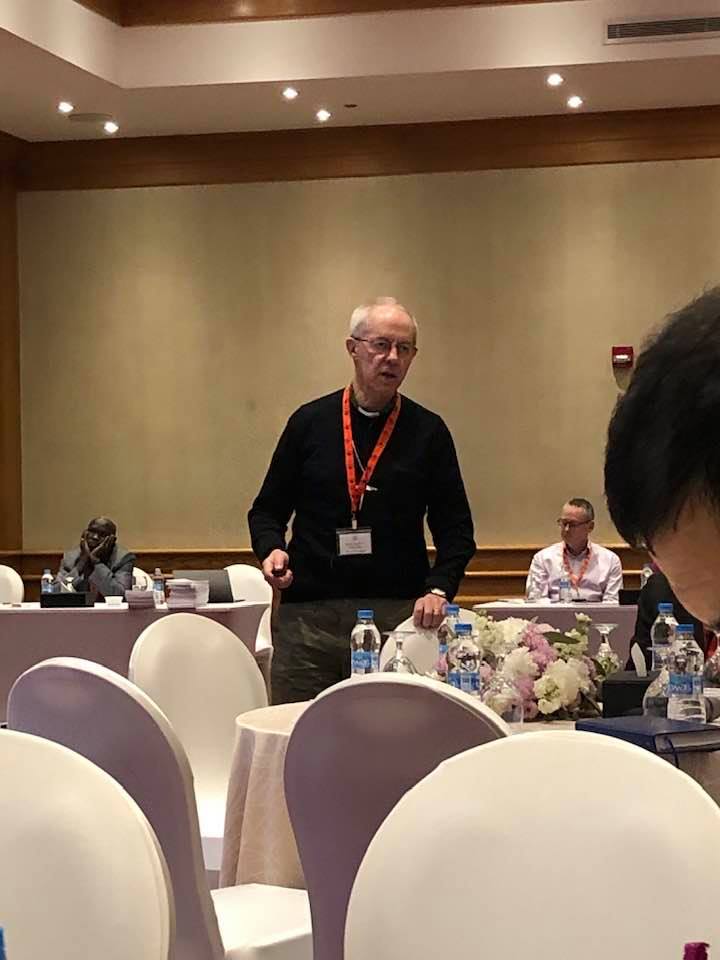


 We must reimagine the entire edifice of our faith, including what we mean by “God” and divine attributes of sovereignty, providence and love that we so often instinctively depend on. In short, we must embrace a radical theology of risk, unhindered by suspicion and fear of the unknown. We cannot be afraid of what Peter Berger called “the heretical imperative.” What will happen when we undertake together this fundamental reimagination? Our liturgies will become more creative. Our mission—our love for the world—will be intensified. Our imitation of Jesus will be palpable.
We must reimagine the entire edifice of our faith, including what we mean by “God” and divine attributes of sovereignty, providence and love that we so often instinctively depend on. In short, we must embrace a radical theology of risk, unhindered by suspicion and fear of the unknown. We cannot be afraid of what Peter Berger called “the heretical imperative.” What will happen when we undertake together this fundamental reimagination? Our liturgies will become more creative. Our mission—our love for the world—will be intensified. Our imitation of Jesus will be palpable. In the continuing assault on objective reality, just as gender is now determined by feelings rather than chromosomes,
In the continuing assault on objective reality, just as gender is now determined by feelings rather than chromosomes,  An Anglican bishop known for his progressive attitude towards reconciliation and the LGBTQ community is retiring after six years of leadership.
An Anglican bishop known for his progressive attitude towards reconciliation and the LGBTQ community is retiring after six years of leadership. “I don’t think they’re a surprise to anybody,” Nicholls said of the statistics in an interview with the Anglican Journal. “Anybody who’s been in the church in the pews, or as a priest, or as a deacon or a bishop has known that this decline has been happening. We see it every Sunday, we see it in lots of ways. “I think it is a wake-up call…. If people are not coming to the church and finding a place of hope and good news, then we have to ask, ‘How are we presenting that hope and good news to this current generation and time? And what might need to be tried?”
“I don’t think they’re a surprise to anybody,” Nicholls said of the statistics in an interview with the Anglican Journal. “Anybody who’s been in the church in the pews, or as a priest, or as a deacon or a bishop has known that this decline has been happening. We see it every Sunday, we see it in lots of ways. “I think it is a wake-up call…. If people are not coming to the church and finding a place of hope and good news, then we have to ask, ‘How are we presenting that hope and good news to this current generation and time? And what might need to be tried?” A far more common practice for congregations struggling with mounting financial obligations, aging buildings, or dipping attendance numbers is the church merger. In recent years, many Anglican churches around the country have joined congregations with others nearby, or even with local Lutheran churches. In the diocese of Qu’Appelle, a merger has been proposed that would see seven churches in the Regina area possibly amalgamated into a single congregation.
A far more common practice for congregations struggling with mounting financial obligations, aging buildings, or dipping attendance numbers is the church merger. In recent years, many Anglican churches around the country have joined congregations with others nearby, or even with local Lutheran churches. In the diocese of Qu’Appelle, a merger has been proposed that would see seven churches in the Regina area possibly amalgamated into a single congregation.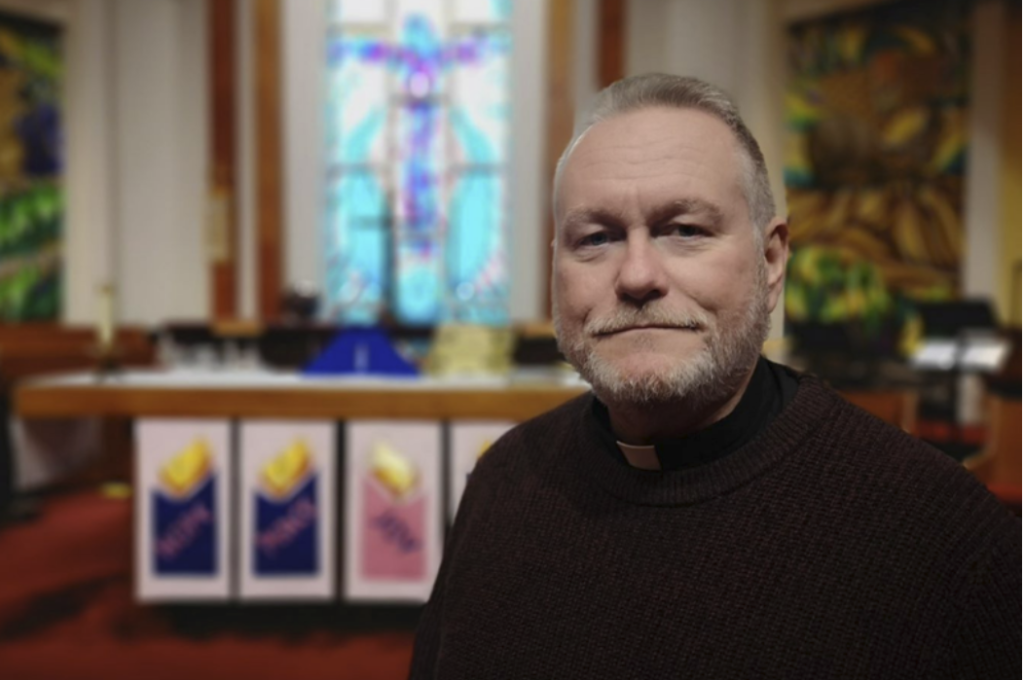 Anglican Diocese of Eastern Newfoundland and Labrador creates new position for climate-care animator
Anglican Diocese of Eastern Newfoundland and Labrador creates new position for climate-care animator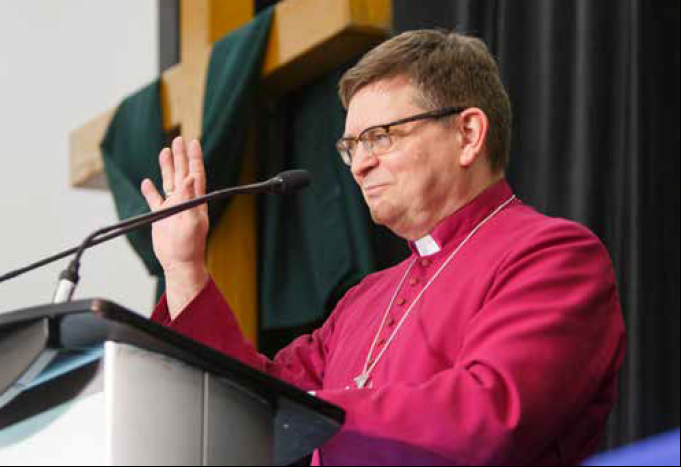 From this sharing and listening, we will gather what we’ve heard into our diocese’s message for the Council of General
From this sharing and listening, we will gather what we’ve heard into our diocese’s message for the Council of General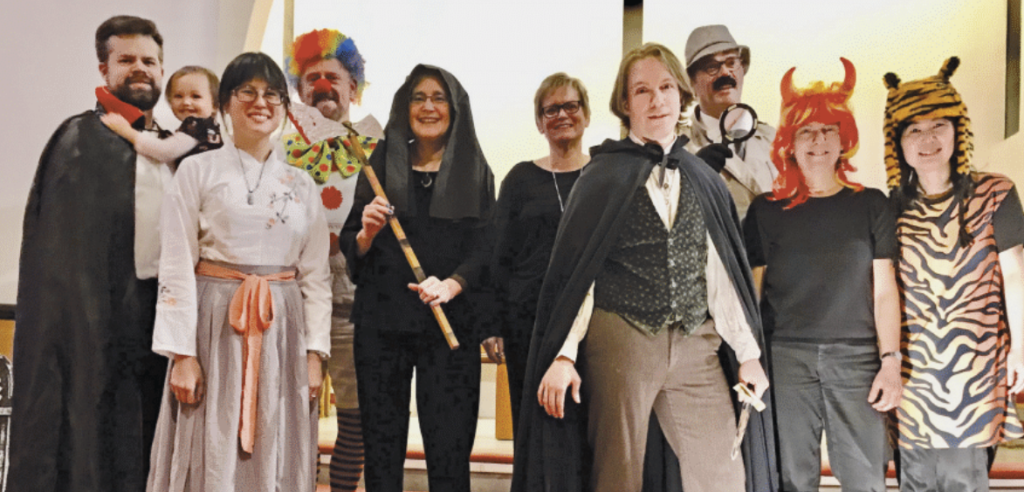 The 14th Annual Hallowe’en Organ Spooktacular
The 14th Annual Hallowe’en Organ Spooktacular The theme of the 2019 diocesan synod was “Sing A New Song”. Most of the items in the bishop’s charge fell rather short of being either new or worth singing about. For example, ever eager to jump on the latest thinly disguised vacuous Gaia worship bandwagon, the diocese has
The theme of the 2019 diocesan synod was “Sing A New Song”. Most of the items in the bishop’s charge fell rather short of being either new or worth singing about. For example, ever eager to jump on the latest thinly disguised vacuous Gaia worship bandwagon, the diocese has